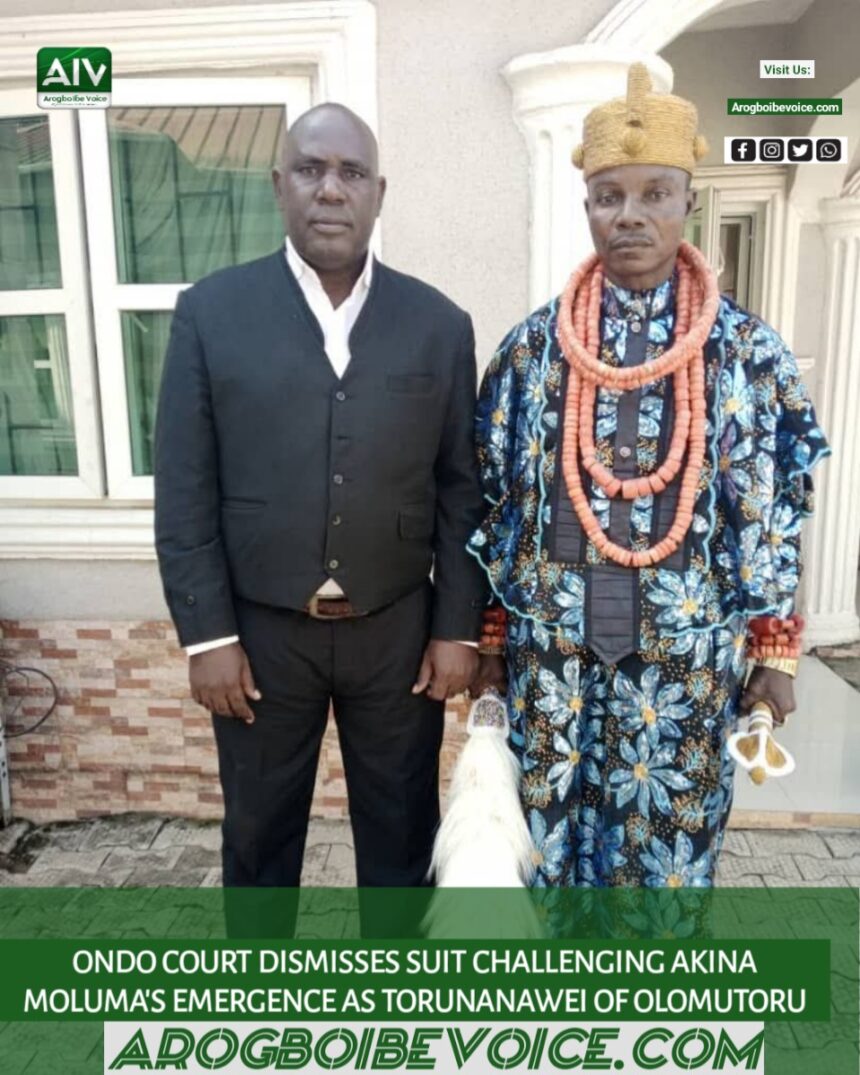The Ondo State High Court sitting in Okitipupa has dismissed a suit filed by Mr. Ebikobowei Ayeuyen, which sought to nullify the emergence of His Highness Akina Moluma as the Torunanawei (traditional ruler) of Olomutoru community in the Arogbo-Ijaw Kingdom, located in Ese-Odo Local Government Area.
Delivering judgment in Suit No. HOK/24/2023 on Monday, Hon. Justice L.B. Ologun held that the claimant lacked the legal right (locus standi) to institute the action. The court further declared the entire suit incompetent, citing a Government White Paper issued on the findings of the Hon. Justice C.E.T. Ajama Commission of Inquiry into chieftaincy matters, which it said disqualified the claimant from aspiring to the traditional stool in question.
Although the court declined jurisdiction due to these findings, it went ahead to review the case on its merits. After adopting the two legal issues raised in the final written address of Barr. Solomon Tunyan, counsel to Akina Moluma, the court found that the claimant failed to prove his claims with credible evidence.
The court also dismissed the argument that the absence of a defense from the Attorney General of Ondo State and the Commissioner for Local Government added weight to the claimant’s case. Justice Ologun ruled that such reliance was legally unfounded.
In the end, the suit was dismissed for lacking in merit.
Reacting to the verdict, Barr. Tunyan commended the court for its “industry and thoroughness” in handling the case. He said he refrained from requesting cost against the claimant in the interest of fostering peace and reconciliation within the community.
Mr. Kokowei, lead counsel for the claimant, was absent at the proceeding but was represented by Mr. Wealth Isaiah, who held brief on his behalf. Efforts by Arogbo-Ibe Voice Reporters to reach Mr. Kokowei for comments after the judgment were unsuccessful, as calls to his known contact details went unanswered as of press time.
The judgment has brought clarity to a dispute that has lingered in Olomutoru, and observers believe it may help stabilize traditional leadership in the area.




